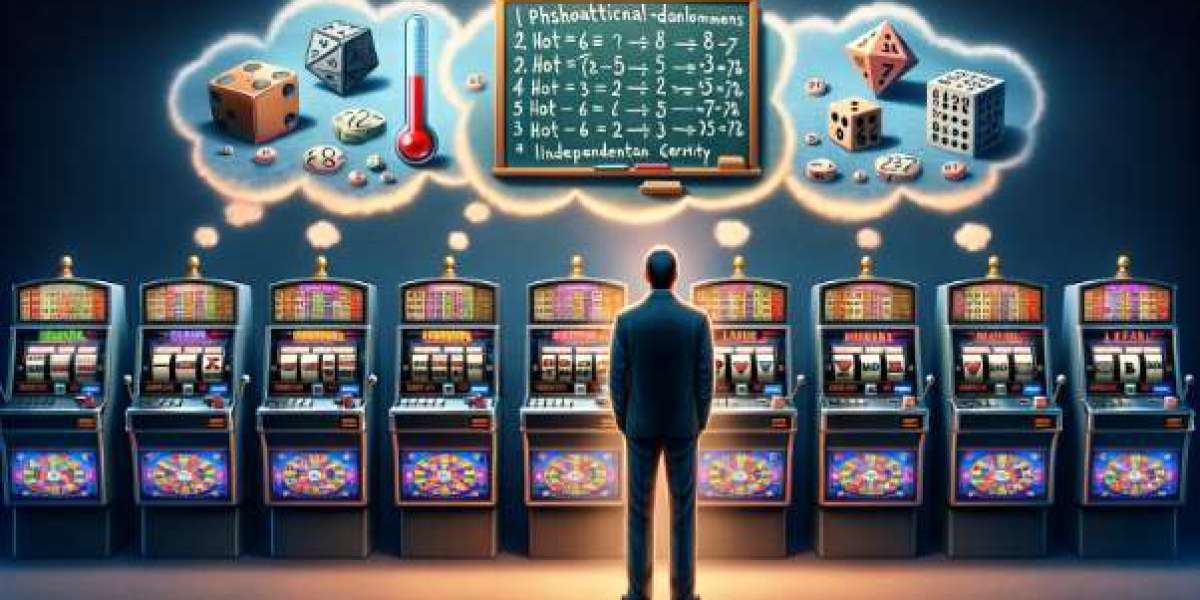In the world of pokies online, where the thrill of the win and the agony of defeat lie at the heart of every spin, a myriad of myths and misconceptions flourish. Among these, the "gambler’s fallacy" and the belief in "hot and cold machines" stand out as particularly pervasive. These fallacies, deeply ingrained in gambling folklore, often lead players down a path of misunderstanding and frustration. However, armed with mathematical principles, we can debunk these myths and shed light on the true nature of gambling randomness.
The Gambler’s Fallacy: A Misunderstanding of Chance
The gambler's fallacy is the mistaken belief that if an event occurs more frequently than normal during a given period, it will happen less frequently in the future, or vice versa. In the context of pokies, it's the idea that after a string of losses, a win is "due." Mathematically, this is a fundamental misunderstanding of independence in probability. Each spin of the reels is an independent event, meaning the outcome of one spin does not influence the outcome of the next. The probabilities reset with every spin, making the odds of winning consistent on each attempt, regardless of past results.
Hot and Cold Machines: The Illusion of Patterns
Similarly, the belief in hot and cold machines is another fallacy that can easily be debunked with a basic understanding of randomness and probability. The idea suggests that machines that have paid out recently are "hot," and those that haven't are "cold," implying that players can predict future outcomes based on past performance. However, this belief contradicts the principle of randomness that governs slot machines. Licensed and regulated online pokies use Random Number Generators (RNGs) to ensure that each spin is completely random and independent of previous outcomes. The notion of hot and cold is, therefore, merely an illusion—a pattern perceived where none exists.
How Math Explains True Randomness
To truly grasp why these fallacies are misconceptions, one must understand the mathematical concept of true randomness. RNGs are algorithms designed to produce a sequence of numbers without any discernible pattern. This means that each number (or in the case of pokies, each spin outcome) is statistically independent and equally likely. The law of large numbers, a fundamental theorem of probability, further explains that while individual outcomes are unpredictable, the overall distribution of outcomes will follow a predictable pattern over a large number of trials. However, this predictability does not extend to short sequences, which is where many gamblers misinterpret randomness for a trend.
The Role of Probability in Gambling
Understanding probability is key to debunking gambling fallacies. Probability, the branch of mathematics concerned with the likelihood of an event occurring, offers clarity on the real chances of winning or losing. For instance, the probability of hitting a specific combination on a pokie machine is determined by the number of reels, symbols per reel, and the RNG algorithm. Recognizing that these probabilities are fixed can help dispel the notion that luck or patterns play a role in the outcome of each spin.
Embracing Randomness: A Healthier Approach to Gambling
Embracing the randomness inherent in gambling can lead to a healthier relationship with the activity. Recognizing that outcomes are not influenced by past events or perceived hot and cold streaks can alleviate frustration and promote more responsible gambling. It's important for players to understand the mathematical realities of the games they play, setting realistic expectations and acknowledging the entertainment value over the pursuit of improbable wins.
Conclusion
The gambler’s fallacy and the belief in hot and cold machines are misconceptions that have long misled players. By applying mathematical principles and understanding the true nature of randomness and probability, we can debunk these fallacies, promoting a more informed and rational approach to gambling. In the unpredictable world of pokies online, recognizing the role of math not only demystifies the game but also underscores the importance of playing responsibly, with knowledge and understanding as our guides.







